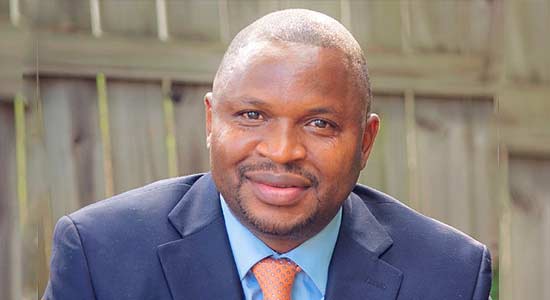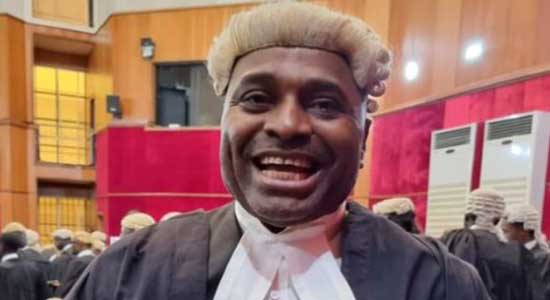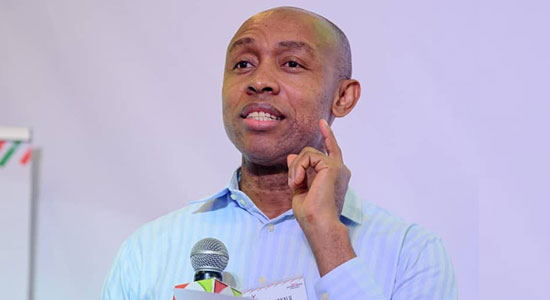Tinubu, Sanusi, Subsidies, And The Economics Of Empathy

By Farooq Kperogi
In response to my September 30 column titled “Thought Subsidy Was Bad. Why is Tinubu Bringing it Back?” a Facebook follower of mine by the name of Anas Mundi asked, “So why is SLS [i.e., Sanusi Lamido Sanusi] always agitating for fuel subsidy removal? I still don’t get it really!!”
My curt, perfunctory, irritated response was: “Because his entire life—from birth to now—has been subsidized, so he lacks empathy. He thinks only he and his ilk deserve subsidies. He is a spoiled, bratty sadist.”
For some reason, this offhanded but accurate response, which I’ll provide evidentiary proof for shortly, resonated with a broad spectrum of people, particularly from the North.
A few days ago, a friend who read my response to Mundi forwarded a news story to me titled, “Why Tinubu Shouldn’t Be Blamed for Nigeria’s Economic Hardship – Sanusi Lamido” where Sanusi basically exculpated Tinubu from any complicity in the unbearably agonizing adversity Nigerians are going through now. He also doubled down on his habitual, mean-spirited, intellectually impoverished, and anti-people evangelism against petrol subsidies.
“It’s injustice for anyone to blame the Tinubu administration for the current economic hardship because there is no other alternative than the removal of the fuel subsidy,” Sanusi said. “After all, Nigeria cannot even afford to pay the subsidy.”
He placed the blame for the current downturn in the economy not on the removal of subsidies but on Buhari’s refusal to completely remove subsidies. “The economy was poorly managed, and they [were] not willing to take advice,” he said.
Recall that in December 2016, Sanusi advised Buhari to “firmly and unequivocally eliminate fuel subsidies” in a presentation that I characterized in my December 10, 2016, column titled “Dangerous Fine Print in Emir Sanusi’s Prescriptions for Buhari” as a hopeless “maze of pseudo-scientific economic gobbledygook.”
Now that Tinubu has “firmly and unequivocally eliminated fuel subsidies” and people are squirming in way worse existential torment than they had ever experienced, Sanusi murdered logic and common sense by insisting that it was the previous government’s repudiation of his recommendation to “firmly and unequivocally” remove petrol subsidies that’s instigating the current mass suffering.
“I can only plead with the people to endure the hardship, and those who have the means to help the downtrodden should do so,” he said. “I am also pleading with commoners to live according to their earnings; we must not peg our lives above our earnings in this difficult situation where people are looking for what to eat.”
Notice that Sanusi is only appealing to the victims of his economic policy prescriptions to learn to “endure the hardship” the policies cause them. He never said anything about the Tinubu government’s unexampled profligate and corrupt expenditures.
For the first time in Nigeria’s history, we now have nearly 50 ministers—with all the avoidable waste that entails. State governors have taken a cue and have enlarged their cabinets, too. The government is growing while the people are groaning, but that’s not a problem for Sanusi.
It recently came to light that President Bola Tinubu spent $507,384, which is equivalent to nearly 400 million naira for his hotel accommodation in New York when he attended the UN General Assembly in September. We also learned that the federal government has requested a $1.5 billion loan to buy new cars for government officials, including SUVs for each of 360 members of the House of Representatives that will cost N160 million per car.
These are merely minor examples of major eyewatering squandermania that is happening in governance, which critics of subsidies that benefit the poor never talk about.
How about the unconscionably outrageous trillions of naira that Nigeria spends on its refineries that don’t work? We learned in May this year that the government spent N11.350 trillion to rehabilitate Nigeria’s three refineries that have never refined a single drop of petrol in decades. But that doesn’t worry people like Sanusi.
Sanusi’s concerns about government expenditures are activated only when the expenditures might benefit poor people. He has a deep-seated loathing for everyday folks and doesn’t have the skills or the intellectual gift to hide it.
In 2012 during the OccupyNigeria protests sparked by the removal of petrol subsidies (which Sanusi helped inspire), Femi Falana told Sanusi at a forum that removing subsidies from petrol would lead to an increase in the cost of transportation, which would trigger inflation that would inflict incalculable hurt on the lives of millions of Nigeria.
“That is not an economic argument,” Sanusi said in response to Falana, as if an “economic argument” were some unquestionable, arcane, and divinely ordained dogma that only he and his fellow neoliberal evangelists could understand and that the rest of us must simply believe in.
Nevertheless, in October 2019, as emir of Kano, Sanusi tearfully narrated the story of a mother in Kano who couldn’t afford the equivalent of $5 to save the life of her child. “This is what happens every day in this country,” he said. “Children die because their parents cannot afford five dollars, that a mother will watch her child die because she does not have five dollars.”
But I thought that wasn’t “an economic argument,” the most important thing that matters in this world. Sanusi has actively encouraged governments since 2012 to implement policies that activate a multiplication of the example of the woman that caused him to cry in public in 2019.
This is a Sanusi that raided the treasury of the Kano Emirate Council like a conscienceless bandit. In an April 8, 2017, investigation by Jaafar Jaafar titled “A word for Emir Sanusi,” we learned that Sanusi inherited more than N1 billion in the treasury of Kano Emirate Council and squandered it “on exotic cars, unnecessary ‘restructuring’ of the palace, frequent foreign travels, chartered flights, customised sets of Christian Louboutin spiked shoes and Moroccan costumes, Internet bills, among others.”
As soon as he became an emir, he paid himself a monthly salary of N12m. “Mr Sanusi’s predecessor, Ado Bayero, was paying himself an average of N1.5 million,” Jaafar Jaafar pointed out. Sanusi also “spent N7m on Internet in ONE month” in 2017. From June 29, 2015 to February 9,” 2015, he spent N37,054,192.06 “on Airtel”. As Jaafar pointed out, “this amount alone could build a modest school or a cottage hospital with equipment as a way of matching his words with action.”
Jaafar’s exposes about Sanusi’s corruption as emir, which he couldn’t deny, caused the Kano State’s anti-corruption agency to probe him and had wanted to use the outcome of the probe to dethrone him but for the intervention of elder statesmen from the North.
A person with this sordid record and elite subsidies thinks the miserly subsidies that make life a little bearable for ordinary people are too much and must be eliminated.
Re: Ignorance of America that Atiku’s Lawyers and Supporters Betray
Your piece on the Tinubu Certificate saga was highly readable and rigorous as usual. But it has at least one not-so-minor flaw. Read Chapter 8, Part IV, Section 318 of the Nigerian Constitution on “Interpretation”. The section which is in four sub-sections (a) (b) (c) & (d), defines “School certificate or its equivalent.” Sub-section (c) lists “Primary Six School Leaving Certificate or its equivalent” as sufficing, provided it is accompanied by (i) service in a public or private sector acceptable to INEC, and (ii) attendance at courses and trainings for up to a total of one year at any institution acceptable to INEC, and (iii) ability to read, write, understand and communicate in English to the satisfaction of INEC.
Sub-section (d) is even more telling. It simply says, “any other qualification acceptable to the Independent National Electoral Commission.”
What all this means is that even if Daley College rescinds President Bola Ahmed Tinubu’s associate degree & his bachelor’s degree from Chicago State University automatically follows, he may still have a leg to stand on. Such is the liberality of our constitution on academic qualification. In other words, it is much more liberal on this issue than most Nigerians imagine, apparently including politicians who gratuitously claim certificates they do not need to qualify as candidates.
Have a great week ahead.
Note: This is my personal opinion & not INEC’s position. And you are free to publish it.
Malam Mohammed Haruna, INEC Commissioner



